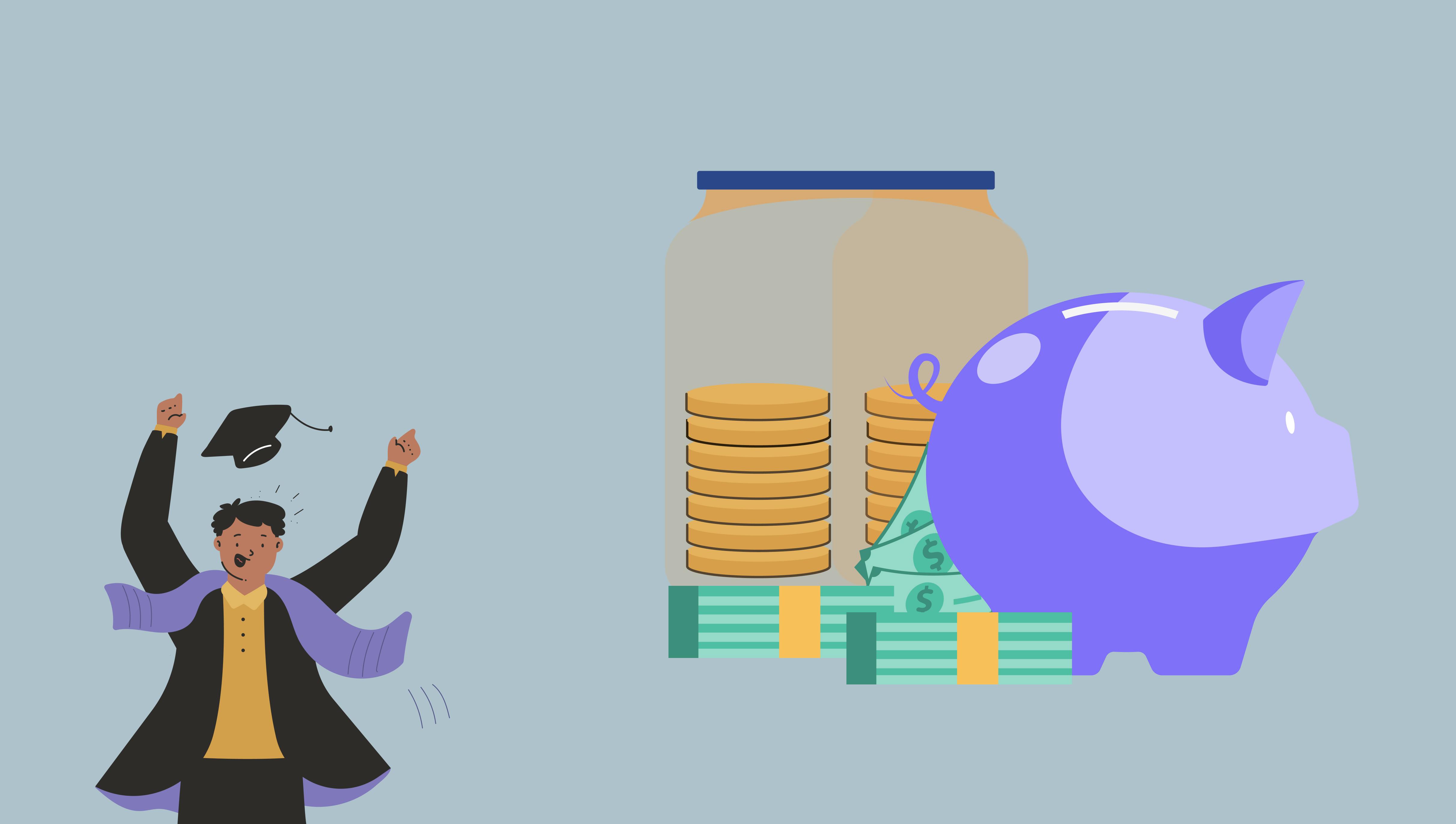How to Save Smartly as a Student
As a student, managing your finances can be pretty difficult given that you are in some or more ways still reliant on a guardian. You may even think, “well, I’m a student; I don’t have to worry about my finances for now.” Deep down, you know that’s not entirely true because the earlier you start planning for your future, the better off you’ll be when that future comes. But then, there’s a ton of stuff you need and want, and there’s probably a wishlist of nice-to-haves on your notepad. Plus, all you really want to do at this stage is to flex.
To make the situation even dicier, when you decide to ignore the warning signs once you get some money (because, YOLO), you still can’t go through with it because that nagging voice keeps whispering “save, dear, save”.
Now, you’re torn between enjoying and planning for the future. You know you could be rocking that new pair of Chelsea boots but you also want to be able to do much more than that in the future. We understand that struggle, trust us. And fortunately, in this article, we will walk you through how to save smartly without placing your life on hold as a student.
Without further ado, let’s get into it.
How to save smartly as a student
- Have a budget
This is the first step to saving smartly. Budgets are super important and there is no skipping them. Budgets are a simple but effective way to plan and also keep track of your finances. Start by figuring out what your basic needs are: do you pay rent? How about provisions? Handout materials and textbooks for school? Be as realistic as possible and avoid putting down absurd numbers. Next thing is to measure this up against your income, be it weekly or monthly.
This way, you can understand how you spend money and on what. It is important to carefully create your budget because this is where you begin to see how much can go into your savings. Then you can determine how often you want to save. Remember, it’s fine to start with small amounts at longer intervals and increase them as you get to know what works for you. - Track your expenses
So you’ve planned your finances and prepared a budget for yourself. You know how much has been allocated for the different categories of your needs and how much goes to saving every day or every month. The next thing to do is to ensure that you actively track your expenses. Have you ever spent so much money and at the end of the month you checked your account balance and wondered out loud: “where did all my money go to?” Well, you wouldn’t need to wonder about that if you keep track of how much you are spending and on what. It is one thing to create a budget and allocate amounts for the different categories of your needs and it is another thing to ensure that you do not go outside the stipulated amounts and overspend. - Set savings targets
Another way to go about saving smartly is to set targets and goals for your savings. How much would you like to save by the end of the month and by the end of the year? You could spice things up by creating different savings plans based on your different goals. If you are saving for your rent next month, a new pair of shoes or maybe a new textbook you need for a project, you could decide to create different savings plans for all those goals. Even better, try giving all your plans fun names, it adds some fun to the mix. And most importantly, remember to set specific, measurable, achievable, relevant and timely goals. - Have an emergency stash
Life happens, you can’t control it but when life happens, at the very least you want to be prepared. This is why it is important that you set up an emergency stash. This stash is a part of your saving that you set aside for unplanned expenses that could happen. As a general rule, it is advised that your emergency fund should be at least three to six months worth of expenses. To set up an emergency fund, you can calculate what three to six months of your expenses amount to and then divide that by how much you would like to save and how often
In conclusion...
An important note to keep in mind is that savings is beyond keeping money; while that is the action, it is also an important habit to cultivate early. Saving brings about a sense of relief that you can achieve your dreams by keeping to a plan. It also gives you a place to turn to in case of an emergency. Finally, you can rest assured that you are on course for the life you want, and can attain financial freedom on your terms.
Disclaimer: This article is meant to provide general guidance and understanding of cryptocurrency and the Blockchain network. It’s not an exhaustive list and should not be taken as financial advice. Yellow Card Academy is not responsible for your investment decisions.


Crypto scoop
Sign up for our weekly newsletter
Stay informed with the latest updates to buy, sell, and store your crypto on the go.

Download the Yellow Card app
Start trading crypto with ease
Get the Yellow Card app to buy, sell, and store your crypto on the go.


